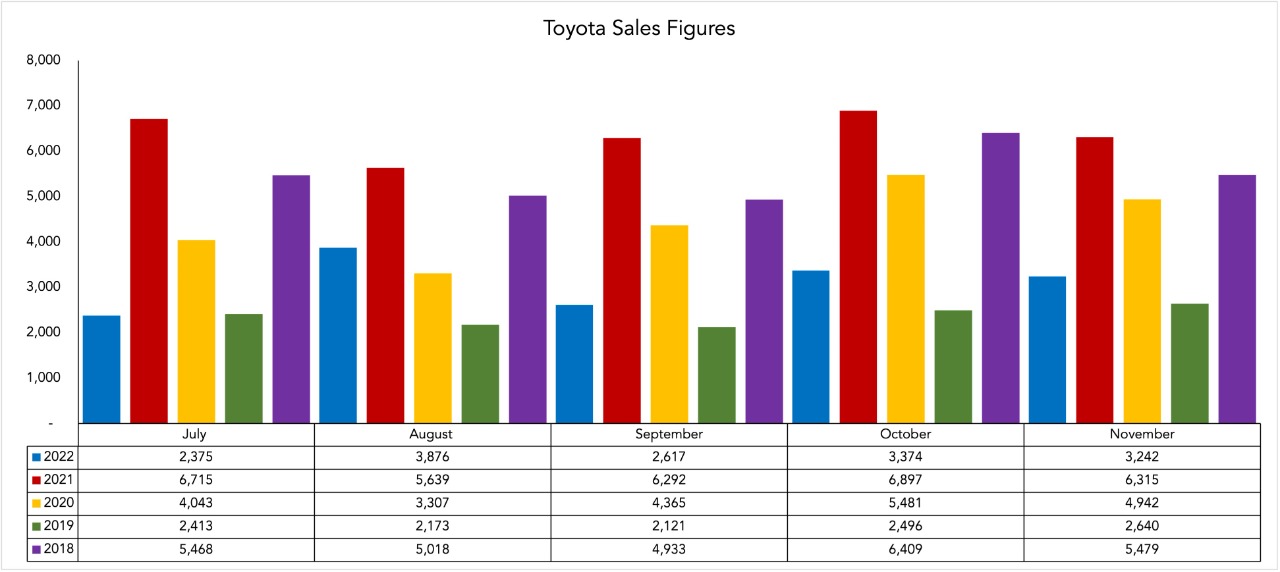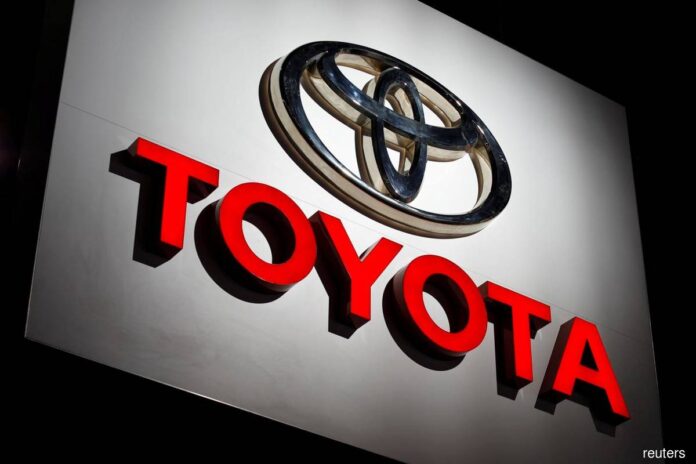LAHORE: Toyota Indus Motors has notified the Pakistan Stock Exchange that it will cease production from December 20 to December 31. This will be the third time that Toyota will observe non-production days in 2022.
Toyota has cited insufficient inventory levels due to the State Bank’s restrictions on imports of completely knocked-down (CKD) kits as the main reason for its actions. The company had previously halted production from September 1 to September 16 and August 1 to August 13 due to the same reasons.
Toyota’s Boogeyman
Throughout 2022, Toyota has blamed the central bank for single handedly forcing it to observe a cumulative of 41 non-production days. It has not been alone in doing so. Suzuki and Honda had also previously blamed it for the 20 and 15 non-production days the two had observed respectively.
Their blame, however, is not misplaced. In May, the State Bank issued a circular stating that it now possessed administrative oversight over the import of CKD units of cars being imported into the country.
The State Bank’s announcement regarding CKD imports came only a day after the government imposed an import ban on luxury items in an attempt to stem foreign exchange outflows. While cars were not a part of the ‘luxury’ items banned by the government, they did come under scrutiny from the State Bank in a much subtler manner.
Essentially, the State Bank told car companies in Pakistan that they needed to seek permission before performing transactions in dollars for the import of CKD kits. This meant that auto assemblers in the country will now need express permission from the State Bank to assemble them in the country.
Through this permission, the State Bank was now able to control how many cars were being imported and how many dollars were outflowing. This became the cudgel that the State Bank now uses against the automotive industry in an attempt to provide life support to Pakistan’s dwindling current account position.
Link between the State Bank’s measures and the worst start in three years
The ramifications of the State Bank’s decisions has been that Toyota has had the worst start to a fiscal year since FY 2019-20. Toyota, like the majority of Pakistan’s automotive industry, operates on a just-in-time model. Per the model, Toyota only begins manufacturing vehicles after having taken orders for the vehicle. A consequence of this model is that it has relatively high lead times. An inability to freely access letters of credit needed to import the CKD kits to manufacture the cars pushes up lead times even more so.
This, consequently, leads to Toyota being able to take lower orders all in-advance due to its inability to handle similar levels of volume it saw in previous years. The inability to actually cater to their customer’s demand, and/or in a timely manner also led to Toyota offering refunds to customers over the summer.

Five month sales volume is 51% lower year-on-year compared to the same period in FY 2021-22. However, as with non-production days, Toyota is not the only one suffering from demand destruction in the current climate. The notification comes the week following Millat Tractors’ decision to permanently observe a four-day work week due to insufficient demand.

























when open?
کوئی بھی ملک جب امپورٹ پر زیادہ انحصار کرے اور لوکل انڈسٹری نہ لگائے اور اگر لگائے تو وہ پراڈکٹ بہت مہنگی ہوں اور اگر سستی ہیں تو گھٹیا میٹیریل ہو تو وہ ملک کبھی بھی صنعت میں ترقی نہیں کر سکتا
اس اس لئے ضرور سوچنا ہو گا